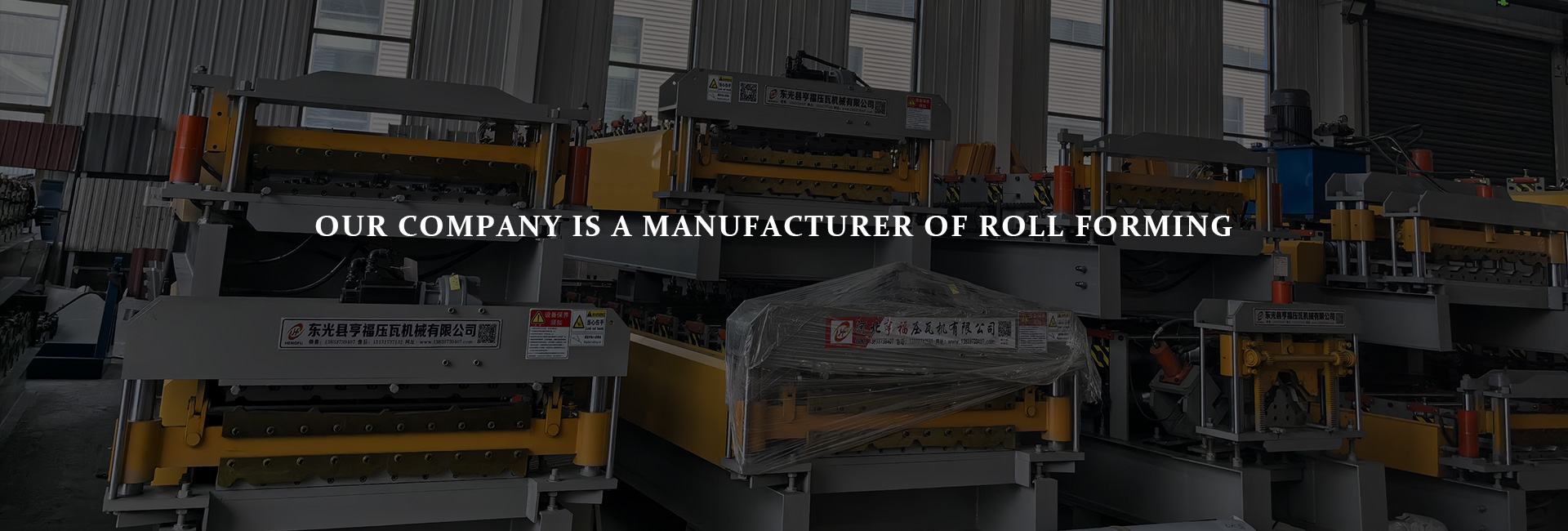In modern construction and renovation industries, the tile roll forming machine is a key piece of equipment for producing metal roofing tiles. Its production efficiency directly impacts overall production speed and cost control. Improving the production efficiency of tile roll forming machines not only increases output but also lowers unit costs, enhancing a company’s competitiveness. This article provides detailed strategies to help you optimize production processes, reduce downtime, and maximize the machine's overall effectiveness.
1. Optimizing the Operation Process
The production efficiency of a tile roll forming machine is closely linked to the operating process. Standardizing and optimizing this process is essential for improving efficiency.
(1) Operator Training
The skill level of operators directly affects the machine’s operating efficiency. Providing professional training ensures that operators understand all functions and operating protocols of the machine. They will be better equipped to handle sudden issues quickly, reducing downtime and avoiding production interruptions caused by improper operations.
(2) Efficient Production Planning
Develop a well-structured production plan to prevent overloading or underutilizing the machine. By analyzing demand and production capacity, you can efficiently allocate production tasks and schedules, ensuring steady production and avoiding unnecessary idling or excessive workload.
(3) Automated Control Systems
Introducing automated control systems minimizes human errors and reduces waste. Fully automated tile roll forming machines equipped with advanced PLC control systems can precisely manage the production process—from material feeding to tile formation—automating the entire operation, increasing efficiency, and lowering labor costs.
2. Regular Maintenance and Upkeep
Regular maintenance and upkeep of tile roll forming machines are crucial for preventing malfunctions and reducing downtime, thereby boosting production efficiency.
(1) Routine Inspection of Mechanical Parts
Regularly inspect mechanical parts such as gears, bearings, and chains to ensure there is no wear or looseness. Timely lubrication helps reduce friction and wear, ensuring long-term stability of the machine.
(2) Electrical Control System Inspection
The electrical control system is the core of the tile roll forming machine. Regularly inspect components like circuits, sensors, and control panels to ensure they function properly. Address any issues immediately to avoid production delays.
(3) Equipment Cleaning
Keep the machine clean, routinely clearing the production line and surface of the equipment to prevent dust and debris from interfering with operations. Regular cleaning also helps in spotting potential problems, allowing for early detection and resolution.
3. Selecting Quality Raw Materials
The quality of raw materials has a direct impact on the production efficiency of tile roll forming machines. Using high-quality metal sheets reduces the likelihood of quality issues and improves the machine’s work efficiency.
(1) Choose Suitable Metal Sheets
Select metal sheets with uniform thickness, smooth surfaces, and appropriate specifications to improve the machine’s forming precision and reduce mold wear, boosting production efficiency. Low-quality metal sheets may cause unstable pressure, affecting formation quality.
(2) Proper Raw Material Storage
Properly store raw materials to prevent deformation or damage to metal sheets, which can improve production efficiency. Use specialized storage equipment and organized management practices to maintain the quality and availability of raw materials.
4. Improving Equipment Operational Efficiency
In addition to regular maintenance and process optimization, enhancing the machine’s performance is also an important way to boost production efficiency.
(1) Upgrade Equipment
With technological advancements, the performance of tile roll forming machines has continuously improved. Regularly evaluate your current equipment and upgrade as needed. Upgrading to more efficient motors, improving mold design, or adopting advanced automated control systems can significantly improve production efficiency.
(2) Optimize Mold Design
The design of the mold directly impact







